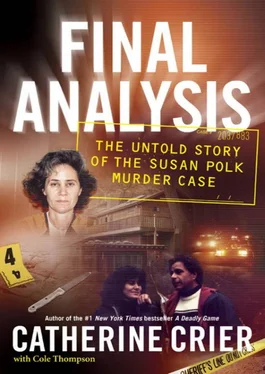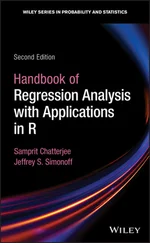Nancy was not the only one who believed that the marriage was solid. While their friends agreed that Sharon was the more outgoing of the two, the resounding sentiment was that the two seemed compatible. With Felix’s advanced degrees and Sharon’s blooming career, the couple seemed destined for success.
Things continued to improve for the young couple when at the age of thirty-six, Felix opened his private practice in the yellow clapboard house on Ashby Avenue in downtown Berkeley, several blocks from the house the couple purchased on Los Angeles Avenue. Their new residence was larger than the one on Cragmont and was located just below Arlington Circle in the center of the city. By 1969, Felix’s private practice was flourishing, and he decided to leave his post with Alameda County to devote more time to his patients. His specialty was the treatment of families and adolescents who were “acting out.”
In late 1971, he attended a weekend workshop on Erhard Seminar Training (EST), a new-age movement founded on the Zen-based approach of master and disciple. The session, led by the movement’s founder, Werner Erhard, had a powerful effect on Polk. Friends reported that the thirty-nine-year-old therapist left the workshop believing he had gained more knowledge in that one weekend than during his four years of graduate school. EST, which literally means “it is” in Latin, promoted the idea that through the application of “programming and reprogramming,” people can rewrite their lives, allowing them to be “set free and born again.” Erhard’s theory was that all problems and limitations were in the mind, and people had been “hypnotized during normal consciousness” to develop debilitating habits and beliefs that could be changed through “conscious rewiring.”
For Felix, this new-age theory made perfect sense, and he embraced it wholeheartedly. Perhaps Susan Bolling was his first disciple, since it was not long after his EST session that the fifteen-year-old walked into his Berkeley office for an evaluation.
There is no written record of exactly when the sexual relationship between Felix Polk and Susan Bolling began. According to Susan, she was fifteen the first time Dr. Polk “molested” her. She claimed he invited her to sit on his lap during one appointment, and by their fourth session he had raped her after placing her in a “drug induced” hypnotic trance. When pressed, Susan could not recall details of the alleged assault or explain why it had taken her more than twenty years to recall the abuse. She insisted, however, that it reached a point in her teenage life when the only time she left the house was to attend her sessions with Dr. Polk.
Before long, Susan grew to dread the appointments, but she claims she never really understood why. There is little question that Susan and Felix engaged in a sexual relationship during their time as patient and therapist. What remains unclear is how that relationship began. According to Susan, all she knew was that the panic—the pounding in her chest, the struggle to catch her breath—never subsided. In fact, it grew worse.
Often, therapists who transgress and have a relationship with a patient are depressed. Rather than predators, they are more often broken in some way. Such was the case with Felix Polk. Susan Bolling was fifteen and needed him. The idea of being needed made Felix feel powerful and sexually charged. In his mind, he and Susan were spiritual comrades, connected by their shared abandonment by their fathers. Susan’s father had left the family when she was six, just like Felix’s father had done—although his action was not by choice, but at the behest of the Nazis.
By falling in love with Susan, he was becoming her father, and Susan hated her father. Susan felt that Theodore Bolling had abandoned the family, and had hurt her mom. Susan recalled a memory in which she walked in on her parents one afternoon at the age of six to find them engaged in a heated argument. Helen Bolling was petite, nearly a foot smaller than her husband, and the impression of her mother dwarfed by her father’s six-foot framed stayed with her.
Unbeknownst to little Susan, Theodore Bolling was angry that his wife was refusing to sign the divorce papers. Helen later recalled how she had known for some time that her husband was having an affair. The “other” woman had been at a New Year’s Eve party that Helen and her husband attended, and Helen immediately knew who she was by the way the woman stared at Theodore. Despite his transgression, Helen was deeply in love with the intelligent, dark-haired man and was unwilling to let him go.
Her refusal infuriated Theodore. Helen recalled it was a horrifying exchange, one that persuaded her to release him from the marriage. Unfortunately for Susan, she was never able to let go of that image.
For some time after that, her allegiance remained with Helen, as evidenced in a letter she wrote to her mother in the summer of 1967. Susan and her brother, David, had been sent to stay with her father and his new family for a time. By then, Theodore Bolling was on his third wife. After leaving Helen, he was briefly married to Rita, the woman who had been the cause of his divorce from Helen. Theodore would remarry once again before settling down and practicing law in Sacramento.
While Susan was enjoying her time with her father, her letter indicates a desperate need to be in contact with her mother:
Dear Momma,
I miss you so much already. Tears are streaming down my cheeks already at night. I don’t want to leave yet, but I sure do miss you. Oh please write me. Oh please. I love you so much….
By fifteen, Susan was on the brink of an emotional collapse. Even under Felix’s care, she continued to feel as if everything was closing in on her. She wanted the claustrophobic sensation to stop. If she could only go to sleep, maybe it would go away.
One evening, Susan’s mother returned home to find her daughter sprawled on the bed. Music was blaring from the stereo, and an open bottle of pills lay by her side. Helen Bolling immediately called for help and alerted Dr. Polk to her daughter’s near-fatal suicide attempt. The psychologist briefly considered placing Susan in a facility for disturbed children at the University of California Medical Center in San Francisco. After careful consideration, he decided instead to put her under the care of a colleague and friend who worked at the Kaiser Mental Facility for Adults in Oakland.
At fifteen, Susan awoke to find herself the only minor in the institution. Much worse than juvenile hall, now she was among truly crazy people. In addition, her psychiatrist was Dr. Polk’s friend. Again, Felix Polk had overstepped his bounds by having the teen admitted to an adult facility and placing her in the care of a friend. If she had been admitted through the hospital emergency room, those doctors would have found a place suitable for a girl her age.
Administrators at Kaiser insisted Susan leave the facility after only one week of treatment; they didn’t want to be liable for a minor. Yet, instead of having the young woman transferred to an age-appropriate facility, Felix Polk took responsibility for her care and allowed Susan to return home to live with her mother in the house she had recently purchased in Orinda.
There was one stipulation—she had to continue to see him for therapy.
In a letter to Alameda County youth officials in 1973, Polk described Susan as a “severely disturbed girl with strong depressive features,” but he failed to mention that his therapy was doing little to help her mental state. Susan was now sixteen. She still refused to go to class, making it clear she had no intention of attending continuation school with a bunch of “uneducated” and “unsophisticated” teens. She was unwilling to be among people of “marginal” intelligence. Remarkably, her probation officer allowed her to remain at home—as long as she continued her therapy with Dr. Polk. The officer had observed a marked improvement in Susan since she started with Felix and believed that the lost teen might actually find her way.
Читать дальше











